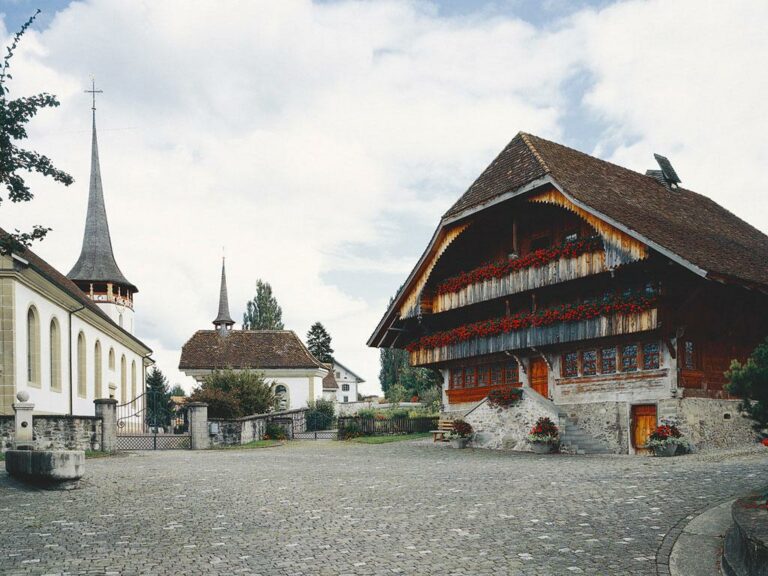The Sense district is the only purely German-speaking district in the predominantly French-speaking canton of Fribourg. The name comes from the river Sense which separates the cantons of Berne and Fribourg.
Between the 7th and 8th centuries the Alemanni began to settle in the region, which was first mentioned as Sensuna in 1076.
Since the repartition of the former four city banners, the region is a separate district. Until the Ancien Régime, the Sense district belonged
for the most part to the Aupanner and thus to the territory of the Republic of Freiburg.
In the 1930s the Sense district was affected by a great poverty that we can hardly imagine today. The Sense district was the poorhouse of the canton, and those who had to fight for their survival every day had little time and resources to think about how they could become better involved in their environment. The life of most Sensler was hard at that time: Many families with many children at the subsistence level, a daily life marked by manual labour, few possibilities of earning money outside of agriculture, churchwith great secular power and by the limited mobility a narrow, very narrowworld view. It was this poverty that made many Sensler seek theirhappiness in the distance. Although the farewell from home wasconsidered
the last resort for decades.
In the 1960s, however, the situation gradually began to change. The realbreakthrough came in the 1970s. This is also reflected in some figures: In1971,for example, women’s voting rights were accepted in the Sensedistrict, after receiving only 12. 5 percent support in 1959 . The influence ofthe church was increasingly critically questioned, secondary schools hadbecome an integral part of school education, and the Christian Social Partyand the Social Democrats revived the politics of the district.

The dialect
The canton of Fribourg is known for many things: Vacherin and Gruyère cheese, Cailler chocolate, HC Freiburg Gottéron and Sensler German. “Sensler what?” you’ll probably think now.
Senslerdeutsch is the everyday language of people in the Sense district of Freiburg. The dialect has around 30,000 speakers. It differs from other Swiss German dialects – enough to attract attention, not too much tobe able to speak its dialect nationwide as a rule. And sooner or later, it willconquer your heart. Nevertheless, the dialect challenges an untrained listener must listen carefully if one wants to understand the Sensler.
Here you will find a short introduction so that you can understand Sensler without problems during your visit.
| Hello Good evening Good bye Up Down | guete Taag, Grüessùch guete Aabe adyöö ùy/wùha, wùcha ay/aha, acha |















